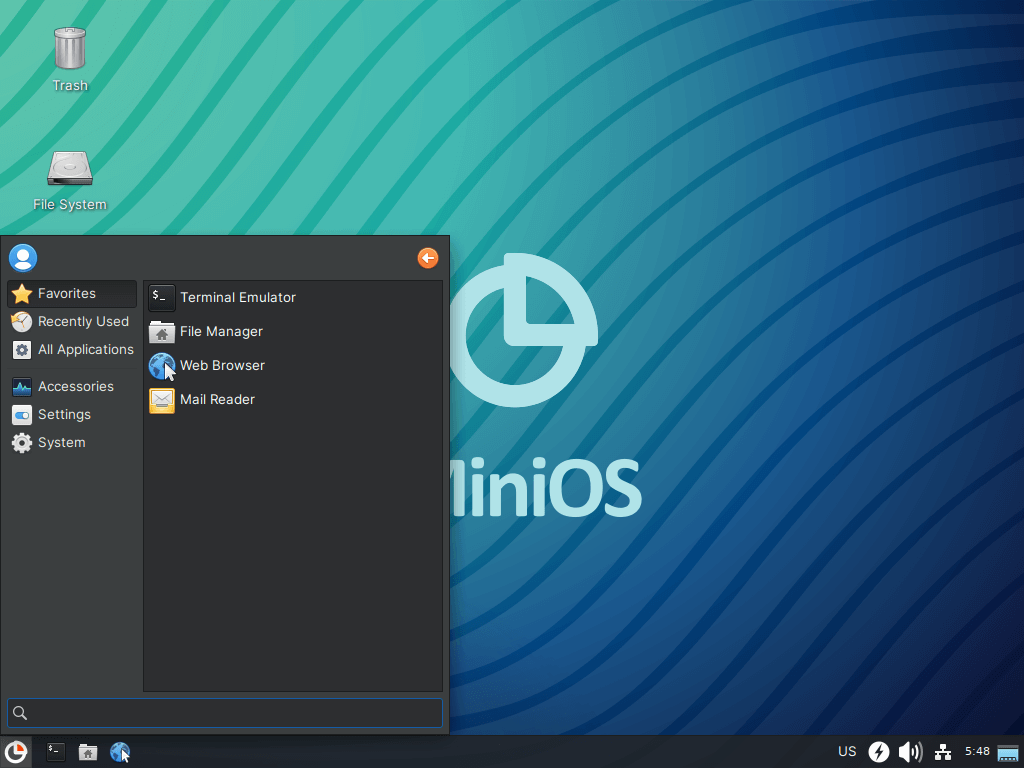MiniOS is a lightweight and fast Linux distribution designed for installation on a USB drive. It aims to provide users with a reliable, user-friendly portable system with a graphical interface.
The MiniOS project was launched in 2009 as a Linux distribution for USB drives based on Mandriva Linux. The modern version of MiniOS has been released since 2020 and is based on Debian – one of the most popular and stable distributions.
A distinctive feature of MiniOS is its modular approach to system configuration, which allows users to add or remove modules as needed. This makes the system easy to use and flexible in customization. Based on MiniOS, you can create your own version of the system by simply and quickly creating the necessary modules with the set of programs you need, creating your own unique ISO using our utilities. In addition, MiniOS occupies only 376-1790 MB of disk space (depending on the version) and can be run from a USB drive without the need to install it on your computer’s hard disk.
MiniOS can be installed using popular programs such as Ventoy, Rufus, UNetbootin, balenaEtcher and many others. MiniOS supports booting from EFI and Legacy-BIOS and uses the same package manager as Debian. This provides access to the same repositories and the ability to install the same software packages.

| Working state: | Active |
| Desktop: | Fluxbox, XFCE |
| Init Software: | systemd |
| Package Management: | APT |
| Release Model: | Fixed |
| Platforms: | x86_64, x86 |
| Home Page: | minios.dev |
| Developer: | MiniOS Team |
| This article is part of our Big List of Active Linux Distributions. |
What's a Linux distribution ("distro")? |
| A distro provides the user with a desktop environment, preloaded applications, and ways to update and maintain the system. Each distro makes different choices, deciding which open source projects to install and provides custom written programs. They can have different philosophies. Some distros are intended for desktop computers, some for servers without a graphical interface, and others for special uses. Because Linux is an open source operating system, combinations of software vary between Linux distros. |
